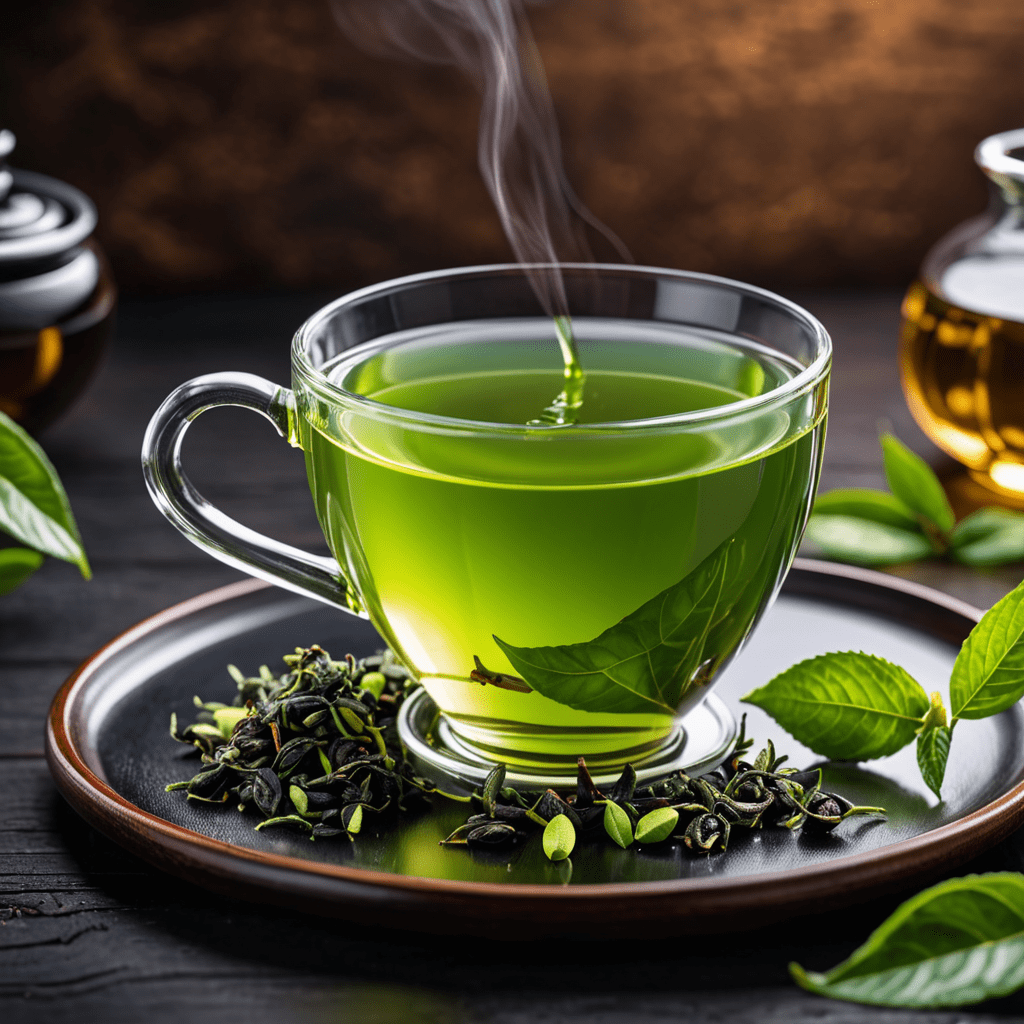
Assam Tea: A Cultural Symbol
1. Introduction
Assam tea, originating from the lush valleys of Assam, India, has gained global recognition for its distinctive flavor, robust character, and cultural significance. Assam tea, often considered synonymous with black tea in India, has become an integral part of Assamese culture and traditions. Its unique cultivation methods, coupled with the favorable climatic conditions of the Brahmaputra Valley, give rise to a tea that captivates the senses and embodies the cultural essence of Assam.
2. Geographical Origins and History
Assam, located in northeastern India, boasts a rich history steeped in tea cultivation. The discovery of indigenous tea plants (Camellia sinensis var. assamica) in the 1820s led to the establishment of commercial tea plantations in the region. The British East India Company played a pivotal role in promoting Assam tea and establishing its position as one of the world's premier tea-producing regions.
3. Cultivation and Production Processes
Assam tea is predominantly cultivated in the Brahmaputra Valley, where abundant rainfall, alluvial soil, and ample sunshine foster optimal growth conditions. The traditional method of cultivation involves growing tea plants as shade-tolerant shrubs under tall trees, mimicking their natural forest habitat. The tea leaves are handpicked during the prime harvesting season, ensuring the preservation of their delicate flavors and aromas.
4. Unique Qualities and Characteristics
Assam tea stands out with its bold, malty flavor and full-bodied character. The unique microclimate of the Brahmaputra Valley imparts a distinct richness and depth to the tea. Assam tea boasts a high content of antioxidants, including polyphenols and theaflavins, contributing to its health-promoting qualities. Additionally, the high amount of caffeine present in the leaves results in a stimulating and invigorating brew.
5. Economic Importance to Assam
Assam tea is not only a cultural icon but also a vital economic driver for the region. The tea industry employs a significant portion of the local workforce and contributes substantially to Assam's economy. The export of Assam tea to various countries around the world has established its global presence and reputation. The revenue generated from the tea trade plays a crucial role in the development and sustenance of the local economy.
6. Cultural Significance in Assamese Society
Assam tea is deeply entwined with the cultural fabric of Assamese society. It is an integral part of religious rituals, traditional ceremonies, and social gatherings. The offering of tea to guests is considered a gesture of respect and hospitality. Tea plays a central role in Bihu, the most important festival in Assam, where it is used in traditional rituals and as a symbol of prosperity.
7. Role in Traditional Ceremonies and Rituals
Assam tea holds a significant role in various traditional ceremonies and rituals. In marriage ceremonies, the exchange of teacups symbolizes the union of two families. During religious festivals, tea is offered as a sacred beverage to deities and ancestors. In traditional Assamese homes, the preparation and serving of tea is an act steeped in cultural significance, reflecting the warmth and hospitality of the Assamese people.
8. Culinary Uses and Associated Cuisine
Assam tea is not only enjoyed as a beverage but also incorporated into various culinary preparations. The strong, malty flavor of Assam tea pairs well with spicy dishes and complements desserts. It is used in traditional Assamese cuisine, such as in the preparation of 'laru,' a sweet delicacy made with jaggery and coconut. Assam tea also finds its way into various tea-infused recipes, adding a distinctive flavor to both sweet and savory creations.
9. International Recognition and Popularity
Assam tea has gained international recognition for its exceptional quality and distinct flavor profile. It is exported to various countries across the globe, captivating tea enthusiasts with its bold and robust character. Assam tea has been featured in prestigious tea competitions and has garnered numerous awards. Its popularity extends beyond traditional tea markets, with many specialty tea shops and tea connoisseurs seeking out Assam tea for its unique qualities.
10. Conservation and Sustainability Efforts
Recognizing the importance of Assam tea to the region, several initiatives have been undertaken to promote its conservation and sustainability. The Assam Tea Planters' Association (ATPA) has implemented sustainable practices to minimize environmental impact and ensure the long-term viability of the tea industry. Organic tea cultivation is gaining traction, contributing to the preservation of Assam's delicate ecosystem. By adopting environmentally friendly practices, the tea industry aims to maintain the unique characteristics and flavors that make Assam tea a global treasure.
Frequently Asked Questions (FAQs)
1. What is the difference between Assam tea and other black teas?
Assam tea is distinguished by its bold, malty flavor and full-bodied character, which stems from its unique cultivation methods and the microclimate of the Brahmaputra Valley.
2. How is Assam tea traditionally consumed?
Assam tea is typically consumed as a hot beverage, with or without milk and sugar. It is also used in various culinary preparations, adding its distinctive flavor to both sweet and savory dishes.
3. Is Assam tea a good choice for iced tea?
Yes, Assam tea's robust flavor profile makes it an excellent choice for iced tea. Its bold character holds up well when chilled and over ice.
4. Where can I buy authentic Assam tea?
Authentic Assam tea can be found in specialty tea shops, online retailers, and directly from tea estates in Assam. Look for teas with the Assam Tea Planters' Association (ATPA) certification to ensure authenticity and quality.
5. What are the health benefits of Assam tea?
Assam tea is rich in antioxidants, including polyphenols and theaflavins, which are linked to various health benefits, such as improved heart health, reduced inflammation, and potential cancer-fighting properties.


